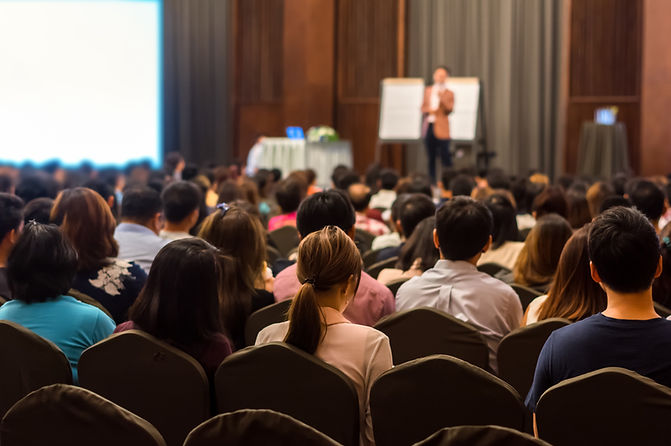
Academic part
The most important part of the congress is undoubtedly the academic part, its scientific programme. The protagonists of this programme are the participants, who are encouraged to actively participate by presenting their projects and theses in this space. Even if you are at bachelor's or master's level and have not had the opportunity to participate in projects, it is a good way to train your presentation skills. If you are at a higher academic graduate level like PhD or postdoc, it is a good idea to present a workshop that can help younger participants. This continuous exchange of information between different academic levels is crucial to generate a mutual learning environment in a friendly atmosphere.
The following is a description of the different elements that make up the scientific programme of the congress, which are present in each edition.

Oral Presentations
A very effective way to present your project, work or thesis. At this congress, presentations occupy a large part of the scientific programme. Depending on the topics the participants will talk about, they will be divided into thematic blocks. Presentations last 10 minutes plus 5 minutes for questions.
Poster presentations
If, on the other hand, you want to present your work to the other participants in a more dynamic way, the poster is a good option. Depending on the number of posters registered, there will be one or two poster sessions where participants can come, see the posters and ask their authors about the project, doubts and questions.


Workshops
If you want to deepen your work, talk about a hot topic in science or create a space for dialogue to help other participants with your skills, organising a workshop is definitely the way to go. Workshops at this congress Each session lasts about 45 min-1h.
Debate sessions
These sessions were created as a space where, as the name itself indicates, the participants can discuss previously proposed topics. This helps to improve debating skills and to get to know different opinions on current science topics and their relationship with society.


Keynote lecturers
Apart from the active participation of students, professors and researchers from the host city's universities are invited to give a lecture or workshop at each edition. It is also a way to get to know examples of research being carried out. A space is reserved in the programme for them.
Journal Club
Sometimes, our participants do not have their own research and therefore cannot/would not submit anything. Therefore, we allow them to actively participate in the conference by presenting a hot topic paper in science and leading a discussion on this topic.


Student Organizations Presentations
different student organisations related to molecular biology, ecology, biotechnology, pharmacy, or medicine at the university, local, or national level present themselves to the participants to network, get to know each other, and maybe arrange a future collaboration.
